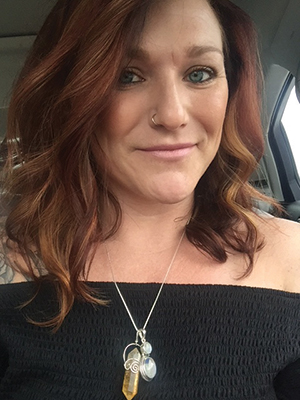
Lisa O’Leary
SIX MONTHS AFTER MY HUSBAND, PATRICK, died of glioblastoma, an aggressive form of brain cancer, I was diagnosed with post-traumatic stress disorder (PTSD). At the time, I thought PTSD—a condition that develops in some people who experience a shocking, scary or dangerous event—only affected people who survived car crashes, natural disasters or combat. I did not know I could have PTSD after living through the 10 months of trauma that came after Patrick’s cancer diagnosis in September 2014.
Within weeks of returning to my job as an attorney after Patrick’s death in July 2015, it was apparent that I was not OK. It took hours to fall asleep at night, and when I did, I was plagued by terrifying nightmares. In my waking hours, I constantly relived the terrible events of Patrick’s illness. I could not focus at work. When I would drive by a hospital or hear an ambulance siren, my heart would begin to race and I would feel nauseated. I started avoiding entire geographic areas, particularly those that reminded me of his illness, for fear of being thrown into a full-blown panic attack. I was depressed and frequently thought about killing myself.
I can see now how getting help earlier could have helped me adjust during Patrick’s illness. At the time, I was so focused on caring for him that I set aside little time for myself. Anxiety and panic became a regular part of my caregiving experience, and these feelings didn’t go away after his death. During the months when Patrick suffered debilitating effects from his illness, including behavior changes, losing his ability to speak and having violent outbursts, I asked my primary care physician for anti-anxiety medication. But I wish I had also taken the time to ask for grief counseling. It was not until two weeks before Patrick died that I spoke to a trained professional.
Caregiving can be traumatic and overwhelming, and a lot of that is unavoidable, but it’s important to prioritize your well-being amid the chaos. This could mean speaking to a spiritual adviser, such as a rabbi or minister. You can also find support in online health communities that focus on cancer support. It’s also important to accept outside help from friends and family, even if that assistance just gives you an hour to refuel.
If you find yourself suffering from symptoms associated with PTSD, don’t be afraid to talk to your doctor, oncologist or health insurance provider about finding a mental health counselor who specializes in helping clients who are experiencing trauma, grief or chronic illness. In addition, Psychology Today provides a searchable database of grief therapists. Finally, if you find yourself thinking about ending your life, the U.S. National Suicide Prevention Lifeline provides free and confidential support at any time, and can be reached at 800-273-8255.
Cancer Today magazine is free to cancer patients, survivors and caregivers who live in the U.S. Subscribe here to receive four issues per year.





